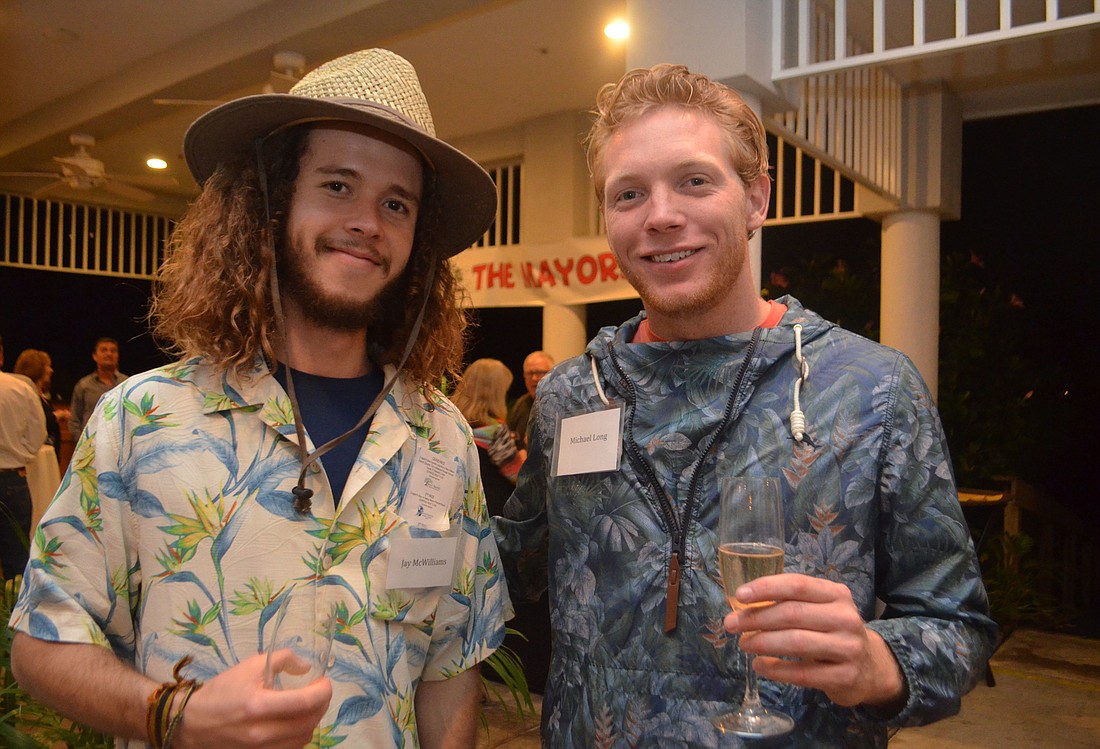- November 18, 2024
-
-
Loading

Loading

Originally, the Longboat Key Garden Club members were known for their green thumbs.
They were dedicated to building parks and creating beautiful spaces on Longboat. Then they realized they could help the environment in another way that didn’t require digging and watering.
The club started awarding annual scholarships to local students pursuing degrees in fields related to the environment.
The applications are open to students in their third or fourth year of college or higher who are pursuing majors that align with the garden club’s objectives. Applications are open until March 15.
“We want to ensure that they are committed to pursuing their education in the natural sciences and conservation and ecology,” club President Susan Phillips said.
Phillips said that because of the club’s narrow criteria, it receives between 12 and 20 applications and awards about six scholarships.
When going through applications, the scholarship committee looks at applicants’ academic achievements, their likelihood of success in the field and the overall strength of the application. Phillips said they want to support someone they know is going to be successful.
“You look at the overall application and the overall difference they can make in the community, and quite often you look at someone like Michael Long, and you help this one young man, and in turn, he touches so many others,” Phillips said. “So you look at your overall impact and investing money in that student.”
We talked with four previous scholarship recipients about how the scholarships helped them and what advice they have for future applicants.
Michael Long
Michael Long didn’t have family support while attending New College of Florida. His two garden club scholarships were the reason he was able to graduate.
Long, who founded SailFuture in 2012, worked multiple part-time jobs throughout school, including as a cook and a landscaper for New College. Because of the scholarships, he was able to use the money from his job on things like housing and gas. The scholarships also meant he had a little more time to focus on starting SailFuture, a mentorship program for at-risk youth.
“If I hadn’t started doing what I’m doing now at New College, I don’t know what I would be doing it,” he said. “Definitely not in this form.”
Long didn’t think of himself as someone who deserved a scholarship, but he learned when you reach out to someone about why you need help and put in good work, positive things can come out of that.
“The real thing is like they seem so far out of reach and reserved for the valedictorian and the football captain, not just the regular kid,” he said. “... All it takes is putting in a good bit of work and writing to someone about why you really need it.”
Jamie Schindewolf
Jamie Schindewolf was studying sociology and sustainability at the University of Florida when she received her first scholarship.
Schindewolf received three scholarships in total from the garden club. The second two came while she was earning her master’s degree in urban planning from Florida State University. She said the scholarships allowed her to get real-world experience in what she was studying. Throughout her studies, Schindewolf was involved in the campus sustainability club, worked with programming during her master’s pursuit and landed an unpaid internship with the city of Bradenton in the planning department.
“It meant that I was able to pursue volunteer opportunities and interests on top of my studies,” she said.
Her biggest piece of advice for students looking to apply is to just do it and put themselves out there, even if their field isn’t all about the environment. Through the application process, Schindewolf realized the garden club knows environmental concerns are interdisciplinary.
“Regardless of your field, if you have an interest in the environment or sustainability they understand,” she said.
Ethan Fenner
Ethan Fenner just started studying at the New York Botanical Garden School of Professional Horticulture, an adventure on which the garden club helped him embark.
Fenner received his scholarship in 2015 while he was studying at New College of Florida. When applying, Fenner talked about his thesis on monoterpenoid production and plant tissue culture, and thinks mentioning his ultimate goal is something that helped in the application process. He said students should have a goal to share with the garden club so they know where their money will be going.
“I had a specific goal in mind, which was the material for my thesis and the necessary components to finish my thesis and graduate, so being able to talk a little bit about that and have something in mind that I wanted to put the money toward,” he said.
Jay McWilliams
In 2016, Jay McWilliams received a scholarship that allowed him to complete his senior thesis. McWilliams created a food forest with multiple species that is now a permanent part of New College’s campus.
McWilliams said the garden club not only helped him academically but also personally. He would not have been able to finish his thesis without the club’s help. Following graduation, McWilliams plans to go Thailand to do agroecological research and then attend graduate school.
Like Fenner, McWilliams said mentioning his project made him stand out to the club.
“We talked a lot about our project, and I guess they were excited,” he said. “It’s plant related and they’re gardeners too, so we’re basically expanding the gardening and agriculture opportunities on New College’s campus, so that must have resonated with them.”